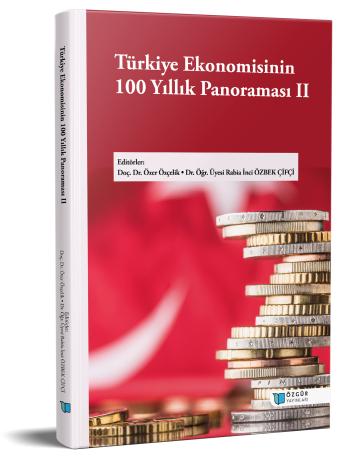
The Effects of Fiscal Policies on the History of the Republic of Türkiye
Chapter from the book:
Özçelik,
Ö.
&
Özbek Çifçi,
R.
İ.
(eds.)
2024.
A 100-Year Panorama of the Turkish Economy II.
Synopsis
Economic, financial, political, social, cultural, and technological developments have affected almost every society. States have implemented various economic policies in response to these effects. This study examines the effects of fiscal policies implemented since the foundation of the Republic of Türkiye on fundamental fiscal indicators. For this purpose, only those within the fiscal policy scope were considered. While examining the implemented fiscal policies and the effects of these policies on fundamental fiscal indicators, the Turkish economy was divided into six periods. Throughout the history of the Republic, the share of public expenditures, which indicates the size of the public economy, in the gross domestic product was an average of 20.2%, and the economic growth rate was an average of 5.17%. The public budget had an average deficit of 2.45%. The period when economic growth performance was the best, and the size of the public economy was the period of 1923-1929 liberal policies. The period when economic growth performance was the lowest and the budget deficit was the period of the 1980-2001 transition to a market economy. While the period with the best budget balance was 1930-1949, the period with the highest public economy size was 2002-2022.

